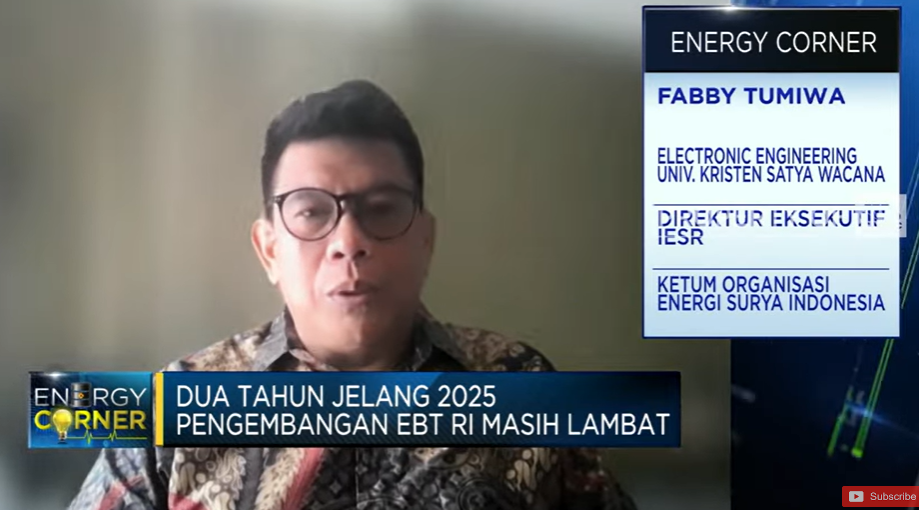Jakarta, January 16, 2024 – The Ministry of Energy and Mineral Resources (ESDM) reported that the realization of the new and renewable energy mix (NRE) was around 13.1% in 2023, up only 0.8% from the realization in 2022 of around 12.30%. The slow growth of NRE in Indonesia is in line with the ongoing fossil subsidies. Based on a World Bank report entitled Detox Development, Repurposing Environmentally Harmful Subsidies (June 2023), Indonesia is the largest fossil energy subsidizer in ASEAN, as well as the 8th largest on a global scale in 2021.
The Executive Director of the Institute for Essential Services Reform (IESR), Fabby Tumiwa, explained that there are systemic problems in achieving the renewable energy mix target in 2025. This is reflected in the development of renewable energy which is not so significant every year. One of these systemic problems, said Fabby, is fossil energy subsidies.
“This fossil energy subsidy provides an incentive for PT Perusahaan Listrik Negara (PLN) to maintain the operation of the coal fired power plant (CFPP) therefore the cost of electricity becomes cheap. The existence of fossil energy subsidies makes the price of PLTU electricity not reflect the real price. On the other hand, the price of NRE is getting more competitive, but it cannot enter the PLN system because there are still many subsidized coal fired power plant (CFPP) fuels,” said Fabby Tumiwa at CNBC Indonesia’s Energy Corner event program entitled “Fossil Energy is Still Subsidized, 23% NRE Mix in 2025 is Difficult to Achieve?” on Tuesday (16/1/2024).
In addition, Fabby emphasized that the thing that affects the development of renewable energy is the procurement of renewable energy plants at PLN. Fabby assessed that PLN has never been by what has been planned based on the Electricity Supply Business Plan (RUPTL). According to Fabby, corrections regarding this matter have also never been made.
“The existence of power plant auctions that are late or not carried out, makes renewable energy plants unprepared at this time. Several factors affect the auction such as regulations, where we have changes from Permen ESDM No 50 of 2017, which then revised for quite a long time, which resulted in Perpres No 112 of 2022. Then, there is an overcapacity condition in the Java-Bali electricity system. There is also the factor of PLN’s internal capacity that affects this,” said Fabby Tumiwa.

